Best Herbs For Container Gardening
In the hustle and bustle of urban life, finding solace in a little green haven is more important than ever. But what if you're living in a compact space with no sprawling backyard?
Fear not, fellow nature enthusiasts! You don't need a large backyard or a greenhouse to create your own slice of botanical magic. The best herbs for container gardening will allow you to bring nature indoors, or liven up a small balcony, while also serving up some fresh flavors for your cooking.
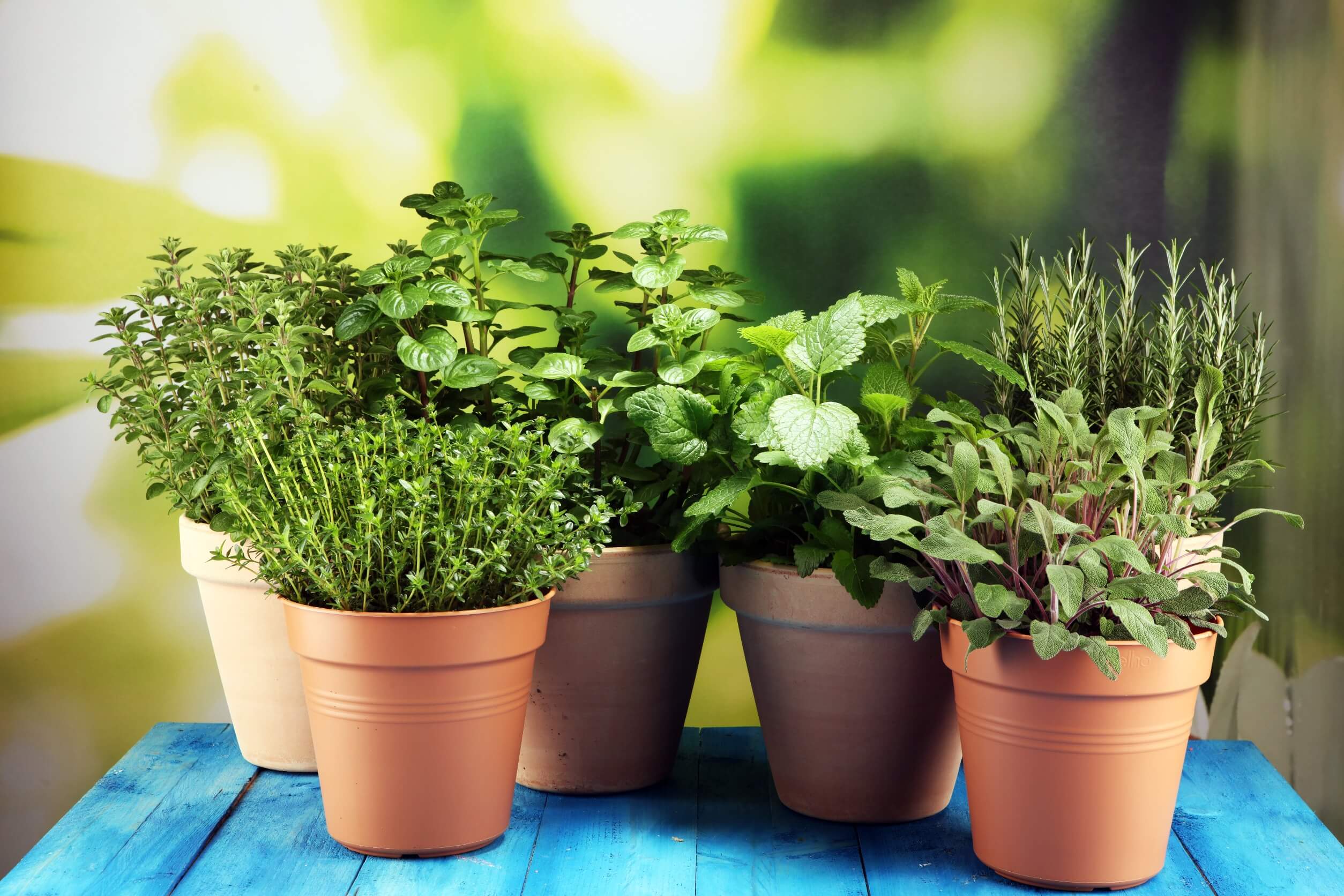
What Are The Best Herbs For Container Gardening?
Container gardening is a great option because it allows you to grow plants indoors or outdoors, depending on your preference or the needs of the plant. So, let's dig in! Whether you're a novice or a seasoned “herbalista”, these herbs are the green companions you've been searching for:
1. Basil: The Aroma Maestro
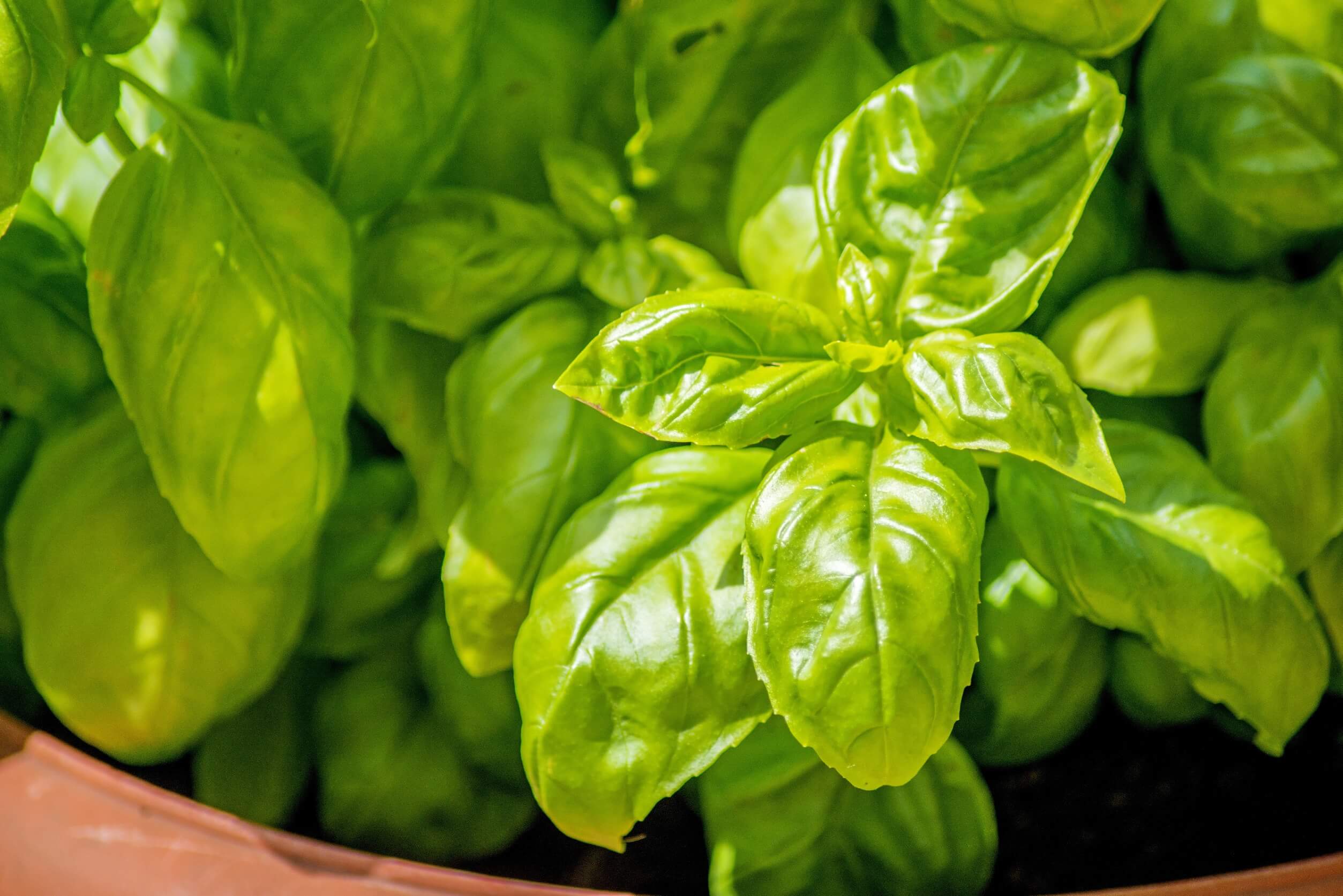
Meet Basil, the rockstar of the herb world. This versatile herb not only adds a burst of flavor to your favorite dishes but also fills the air with its irresistible aroma.
Basil quite literally "pots" very well with others, and is among the most quintessential herbs for any home garden. It grows exceedingly well in small spaces and loves sunny spots. Perfect for both indoor and outdoor containers, Basil is a must-have for every green thumb. Plus, think of the pesto possibilities!
Pro-tip: Regularly pinching off the top leaves encourages bushier growth, ensuring a continuous supply of fresh leaves. You can even cut it back to just a few leaves and it will regrow.
2. Mint: The Refreshing Rebel
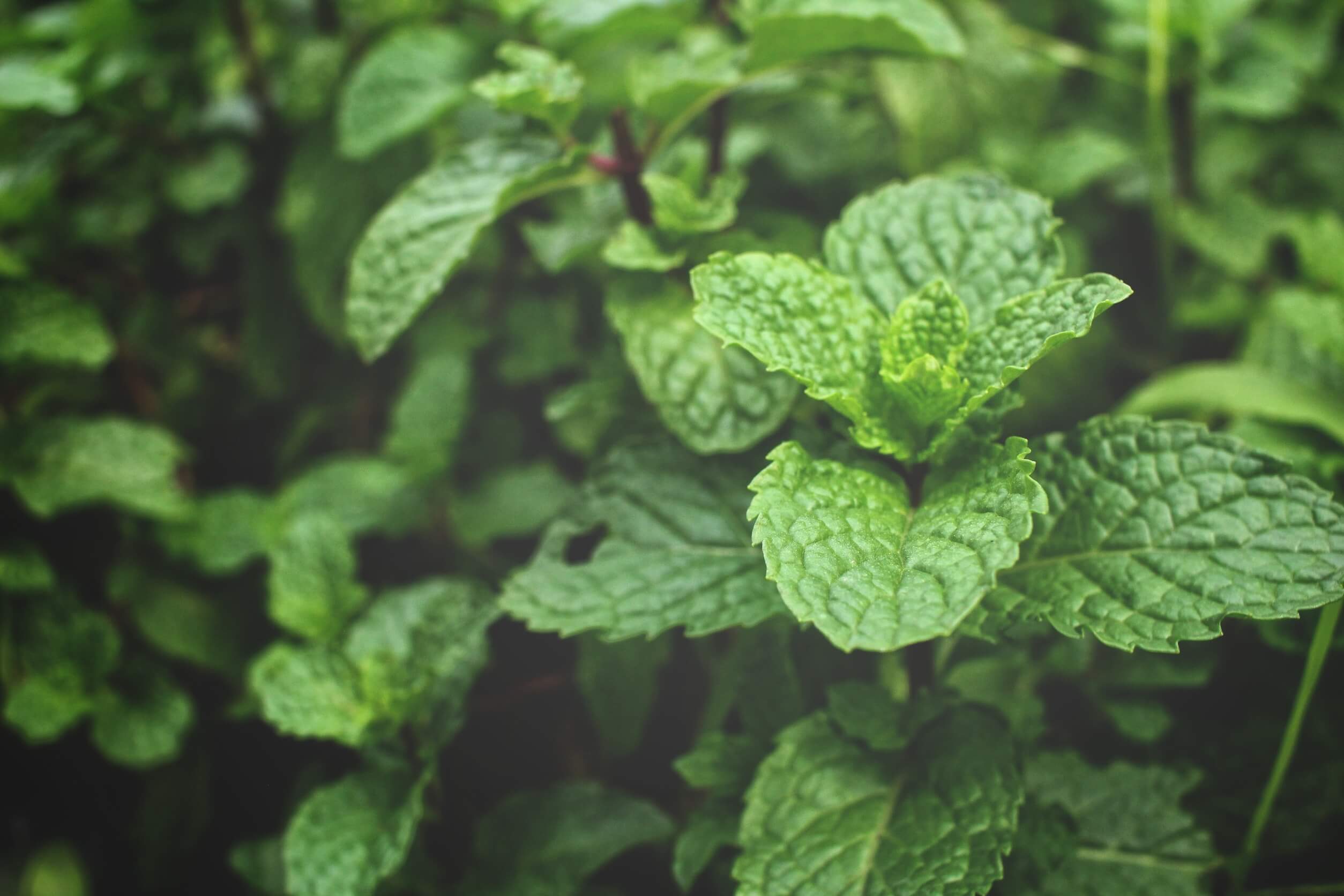
Mint might just be the Justin Bieber of herbs, it simply doesn't know how to stay in its lane. When planted in a garden, this sprightly plant spreads aggressively, taking over other plants' space.
However, when it's growing in a pot, and it has no other option but to keep to itself, mint becomes a wonderful pot companion. If you're into refreshing teas or fancy a zesty Mojito, Mint is your go-to herb.
Pro-tip: This vigorous grower thrives in containers, just don’t plant it with any other plants or herbs as it will quickly out compete them for space and light.
3. Rosemary: The Hardy Hero
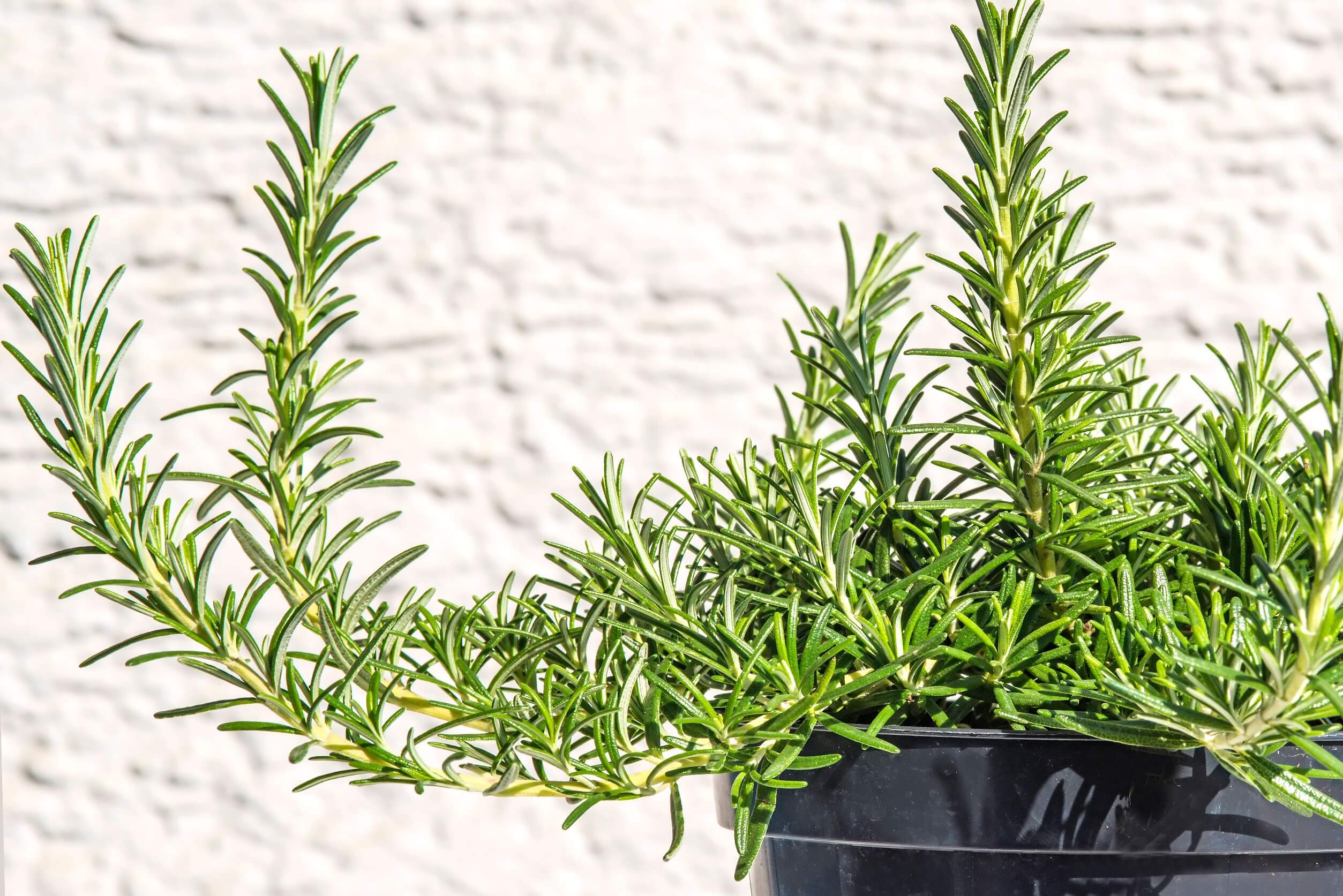
Say hello to Rosemary, the resilient hero of container gardening. With its aromatic needles and hardy nature, Rosemary can withstand the challenges of urban living. It thrives in full sun and withstands drought superbly. The aroma it provides is simply wonderful, if not makes you down-right hungry.
It's an easy plant to grow, though it might just make you work for your roasted chicken seasoning by growing a bit more slowly than others. It prefers well-draining soil, so make sure your container provides adequate drainage.
Pro-tip: This herb loves the sun, so place it in a sunny spot for optimal growth and flavor.
4. Parsley: The Culinary Classic
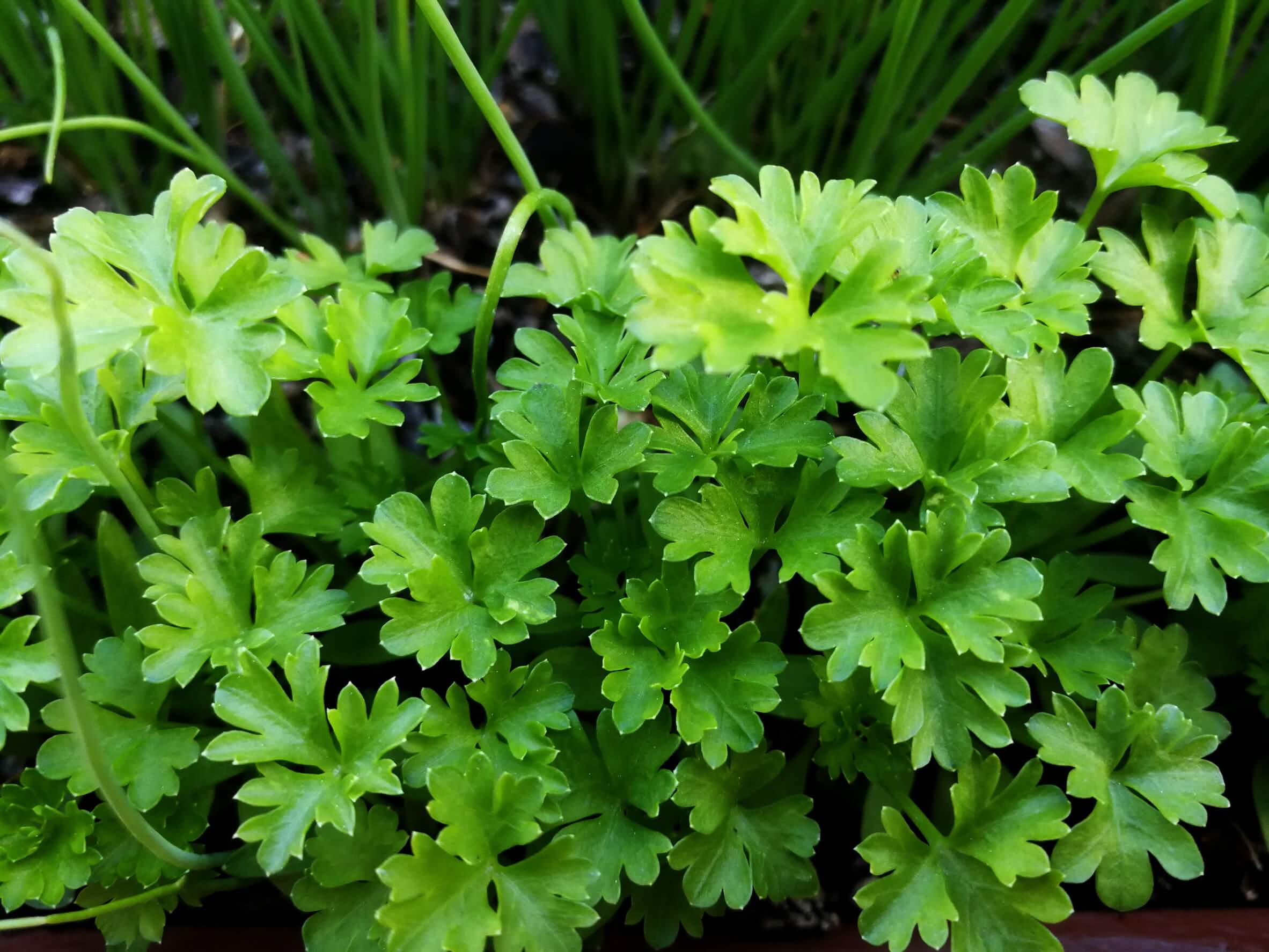
Parsley, the unsung hero in the culinary world, deserves a prime spot in your container garden. This versatile herb adds a fresh kick to salads, soups, and sauces.
It's easy to grow in containers, and bonus: it's a super-herb packed with vitamins and antioxidants! So, by growing parsley, you can have a mini health supplement farm right in your kitchen.
Pro-tip: Keep the soil well-moistened, and you'll have a constant supply of this culinary classic at your fingertips.
5. Chives: The Compact Companion
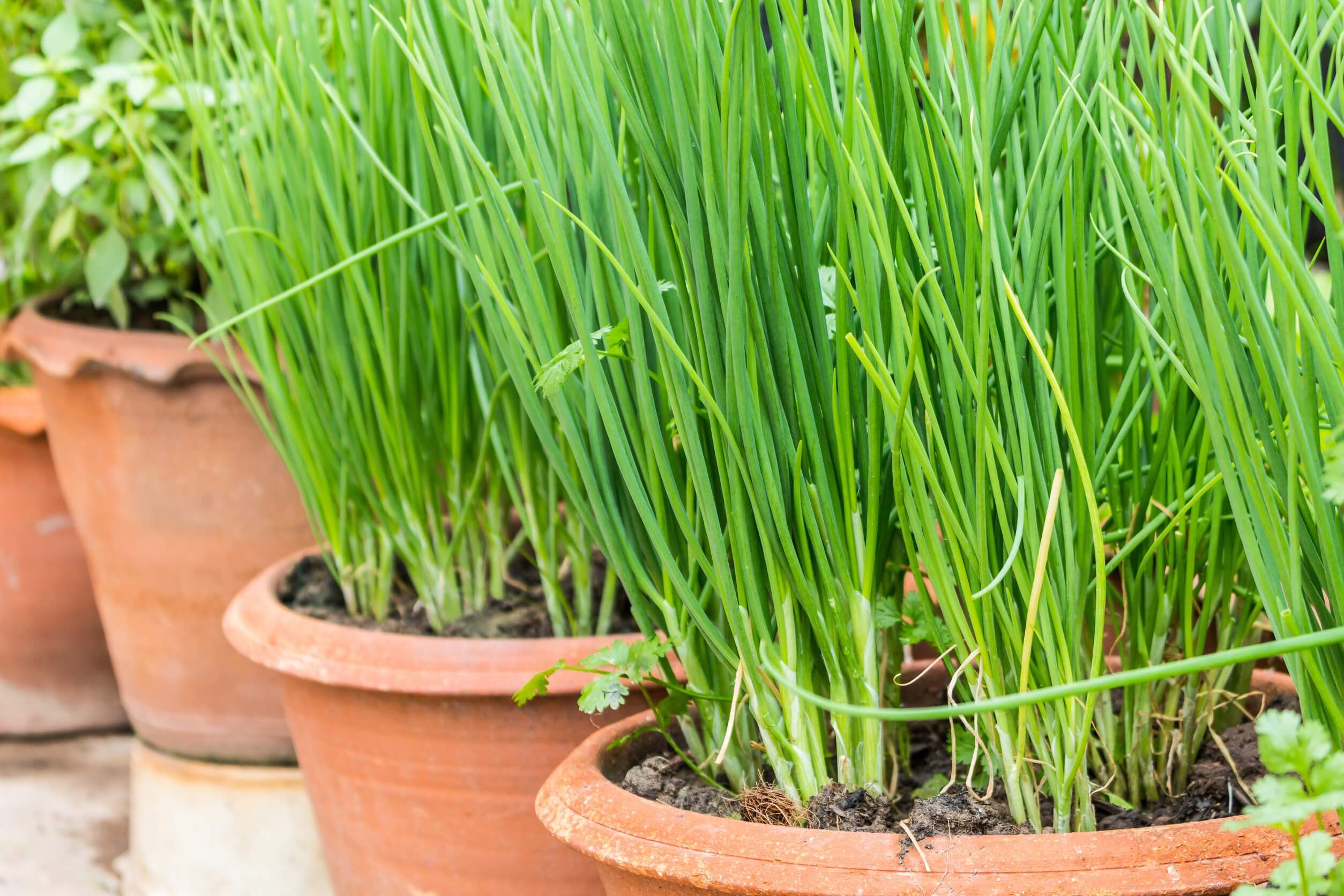
For those tight on space, Chives are the perfect compact companion for your container garden. These slender green stalks boast a delightful, subtle onion flavor that goes well with so many dishes. Plant them in a small pot, and they'll thrive in various conditions.
If you want a herb that gives back year after year, this is your herb. These hardy perennials will regrow yearly, and they require minimal care. They do get pretty little purple flowers if you let them go uncut. Try to remove them before they go to seed, or add them to the salad.
Pro-tip: Snip the chives regularly to encourage new growth, and watch your culinary dishes transform with that mild onion flavor. The more you snip, the more you get!
6. Thyme: A Timeless Treasure
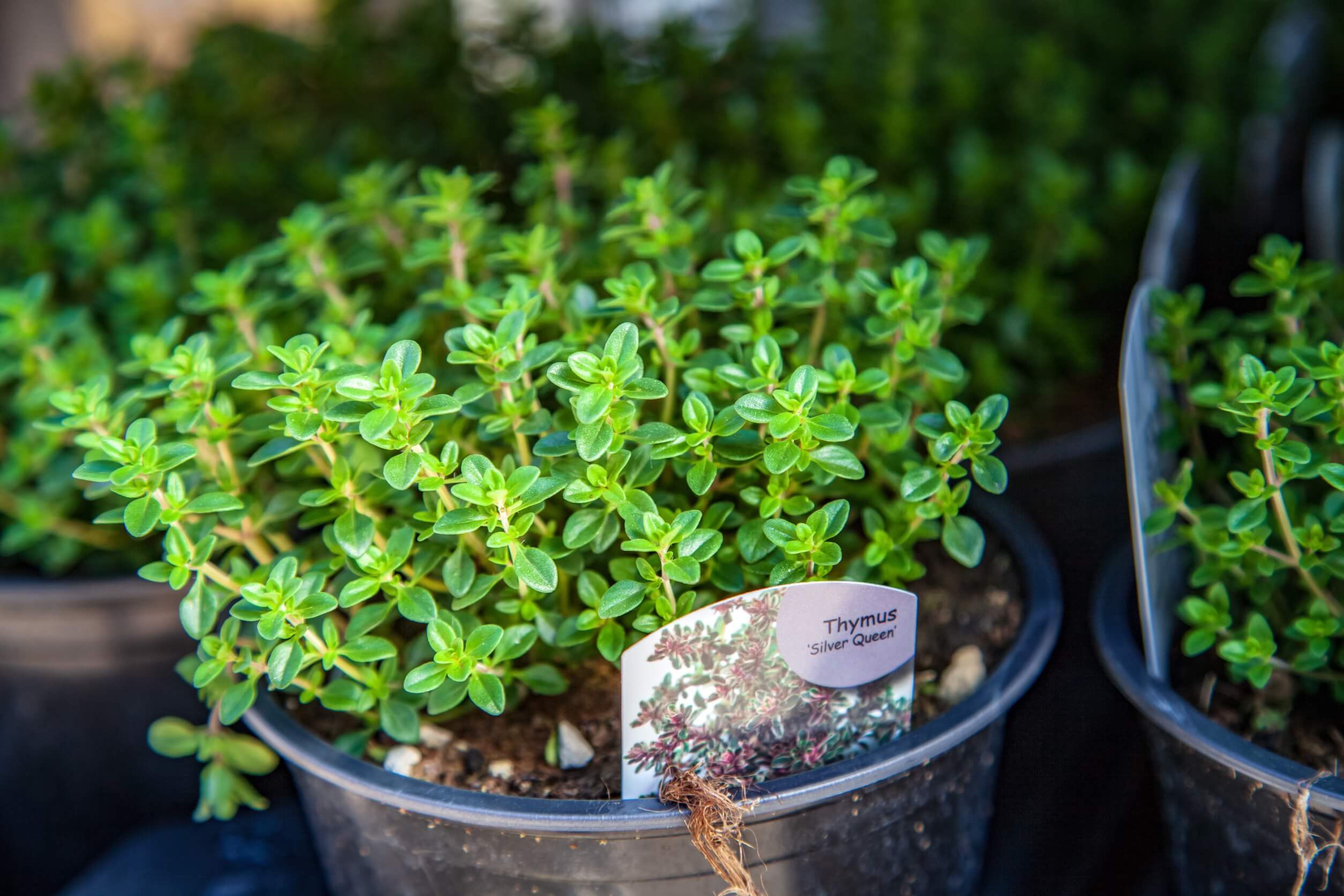
Last but certainly not least, we have Thyme – a timeless treasure for container gardening. This low-maintenance herb is drought-tolerant, making it an ideal choice for you more forgetful “herbalistas” (I sadly include myself in this category).
It's a hardy grower, and like any good introvert, thyme prefers being left alone. In “thyme” it will expand over quite a large area. Keep it trimmed back, or transplant it to an outdoor space you need filled. It also has small pretty flowers as it matures.
Pro-tip: Trim the woody stems regularly to promote new growth, and allow the soil to dry out between waterings. This will keep your Thyme flourishing.
A Word To The "Water-Wise" on Hydroponics
If you plan on being a true herb whisperer, you might want to expand by exploring the realm of hydroponic gardening. It's like taking gardening to Jedi level; using water and nutrients instead of soil to grow herbs. It’s the space travel of home gardening, you know, growing plants without earth!
Using the hydroponic technique, you can grow herbs faster, have better control of nutrients, and avoid soil-borne diseases. These are excellent benefits, but the setup does require a bit more setup and initial investment. Hydroponic gardening is like the high-tech cousin of traditional gardening. Intrigued? Click on the links below to unravel the mysteries of hydroponic gardening:
1. Discover the different types of hydroponic systems here on our Home Hydroponic Gardening Systems page, and see if any might work for your herb garden.
2. Kratky Hydroponics is a cheap and simple way to get started on hydroponics, and it can be great for many herbs. Check out more on the Kratky Hydroponics page.
A Final Word On Growing Herbs In A Pot
Once you've decided on your herb squad, it's essential to understand some basics about how to care for each type. Remember, these are general guidelines; each herb also has its unique plant "personality" and needs.
Located in a cozy apartment on the high-tens? No fret. Indoor gardening is pretty uncomplicated. Position your pots near a sunny window for at least 6 hours of light a day. Too much shadow-play and your herbs might just go on strike.
Now, if your green space happens to be an outdoor balcony or terrace, think of it as the countryside for city-living herbs. They'll love the fresh air but remember to adjust the care for the weather conditions. Like us, herbs aren't too keen on extreme temperatures.
It’s a joy both to watch something grow from seed and to use aromatic herbs in your meals that you've grown yourself. Plus, nothing impresses friends and woo's guests like “Oh, that garnish? I grew it myself.”
But remember, herbs are like people. Some like a lot of attention and others just want to chill. Some are always thirsty, and others only drink socially. Some love the sun and others are homebodies. Getting to know your plants will increase your chances of having a happy, thriving herb garden.
So, there you have it. The basics of setting up your herb container garden, the best herbs for container gardening, and a gentle nudge towards the hydroponic pot world. All that's left for you is to pick your plant team and get planting!
Remember, the biggest herb gardening secret isn't in the soil, pot, or hydroponics, it's in the joy you find in tending to living things. That's often the ingredient that makes those home-grown herbs taste just that much better.
So go out there and try it, and remember to keep “thyme” and "chive" on!
HOME > Container Gardening For Herbs > Best Herbs For Container Gardens (This page)